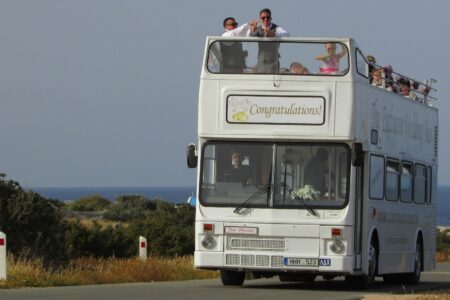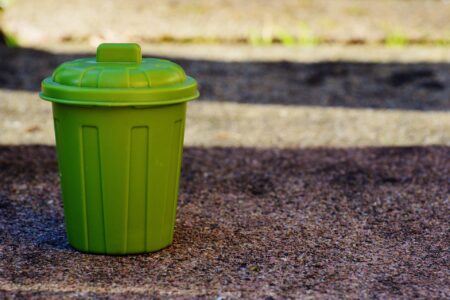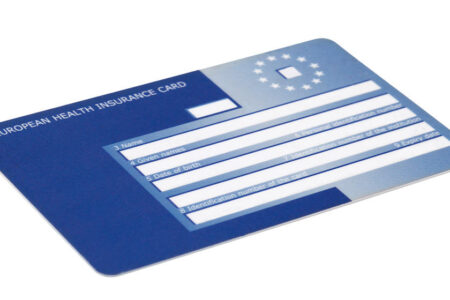Cyprus ranks 32nd on the list of countries with a safety factor of 8.88 according to the 2019 World Rankings. This rating implies that Cyprus is considered a relatively safe place to live and stay. To further understand the significance of this figure, it is useful to compare it with the ratios of other countries. For example, the Philippines, which ranks lowest, has a safety factor of 17.7, while Iceland, which tops the list, has a safety factor of 6.16. These figures suggest that Cyprus is a relatively safe place, although the country’s security rating has deteriorated slightly since 2015, when the island was ranked 5th.
To understand the concept of “security” in more detail and understand how the rating is formed, it is important to consider the main criteria taken into account when calculating it. The world ranking takes into account the following three criteria:
- Personal safety. This criterion includes an assessment of the level of personal integrity, property integrity, crime levels, the state of the environment and the health care system. Let’s take a closer look at each of these aspects in the context of Cyprus.
- Martial law. This criterion assesses the level of military activity and conflicts within a country. Cyprus, despite historical problems with the division of the island between Greece and Turkey, is currently in a stable position and is not experiencing active military conflicts.
- Natural disasters. This criterion assesses the level of risk associated with natural disasters such as earthquakes, tsunamis, floods, etc. In Cyprus, earthquakes are the most common natural phenomenon, but they are usually of low magnitude and rarely lead to serious consequences.
Contents
- 1 Dangers for tourists in Cyprus
- 1.1 What to watch out for when holidaying in Cyprus:
- 1.2 Probability of natural disasters in Cyprus
- 1.3 Earthquakes
- 1.4 Showers in winter
- 1.5 Martial law in Cyprus
- 1.6 Crime situation in Cyprus
- 1.7 Car accidents in Cyprus
- 1.8 Property security
- 1.9 Health and ecology in Cyprus
- 1.10 Sun of Cyprus
- 1.11 Mosquitoes in Cyprus
- 1.12 Smoking in Cyprus resorts
- 1.13 Local laws of Cyprus
- 1.14 Opportunity to miscalculate the fare
- 1.15 Museums and temples
- 2 Poisonous inhabitants of Cyprus
- 3 Poisonous snakes of Cyprus
- 4 Dangerous spiders of the island
- 5 Dangerous marine life in Cyprus
Dangers for tourists in Cyprus
Holidays on the island of Cyprus attract thousands of tourists every year with its beautiful beaches, rich history and pleasant climate. However, as with any tourist destination, there are dangers that may affect your holiday. Understanding these risks and taking precautions will help you enjoy a safe and enjoyable holiday in Cyprus.
What to watch out for when holidaying in Cyprus:
- Insect, snake, and jellyfish bites. Encounters with insects, snakes and jellyfish are not that rare on the island. Although in most cases the bites are not fatal, they can cause unpleasant consequences. Be careful and avoid contact with unfamiliar species of animals and sea creatures.
- Conflicts while intoxicated. Drinking alcohol in moderation is the key to staying safe while on vacation. Excessive use can lead to conflicts and accidents.
- Road traffic accidents (RTA). In Cyprus, traffic is on the left, which may be unusual for tourists from countries that drive on the right. You should be especially careful when crossing roads and when renting a car.
- Unsafe swimming. In dangerous areas or in stormy weather, swimming can be dangerous. Pay close attention to warning signs and rescue instructions.
- Sunburn and strokes. Cyprus is known for its sunny climate, so sun protection is essential. Remember to use sunscreen and wear hats in hot weather.
- Poisoning and overeating. It’s easy to get carried away by local cuisine and exotic dishes while on vacation. However, overeating or consuming low-quality foods can cause poisoning. Practice good hygiene and ensure food is prepared in a safe place.
- Injuries during active recreation. Many tourists come to Cyprus in search of active adventures such as water sports and trekking. However, if you are inattentive and use the equipment incorrectly, you can get injured. It is important to follow the instructions of the instructors and use protective equipment.
- Sexual harassment. It is important to remember that sexual harassment can occur not only from indigenous people, but also from other tourists and migrants. In case of problems, contact local authorities or legal representatives.
Even if you consider yourself the most laid-back traveler, it’s always worth purchasing travel insurance before your trip. Unexpected situations can happen at any time, and insurance will help you avoid financial costs for treatment. The cost of medical services in Cyprus can be high, especially when using private doctors.
Probability of natural disasters in Cyprus
The island of Cyprus, with its picturesque landscapes and pleasant Mediterranean climate, attracts many tourists and becomes a permanent residence for many. However, like most regions of the world, there is potential for natural disasters. Let’s look at what natural disasters can occur in Cyprus and how they affect life on the island.
Earthquakes
One of the most typical natural disasters in Cyprus is earthquakes. The island is located in an earthquake zone, and tremors are indeed a part of life here. However, most of them are usually weak and can only be detected by specialized devices. People often do not realize that an earthquake has occurred.
A serious earthquake that occurred in 1996 with a magnitude of 6.5 was an exception to the rule. As a result of this event, houses were damaged in several cities in Cyprus, and, alas, two people died. However, such strong earthquakes are extremely rare on the island, and Cyprus is usually in a stable condition.
Showers in winter
Cyprus can experience prolonged downpours in winter, which can lead to some unpleasant consequences. In such cases, power lines are broken, small rivers overflow their banks, and water spills into the streets. However, it is worth noting that this is not a danger, but a temporary inconvenience. Such phenomena can occur in almost any part of the world.
It is important to note that local authorities and ordinary residents of Cyprus have experience and knowledge of how to deal with natural disasters, and they are ready to respond to possible emergency situations. In addition, building codes and construction standards on the island are strictly controlled to reduce earthquake risks.
Despite the potential for natural disasters, Cyprus remains an attractive and safe place to holiday and live. Locals and tourists can enjoy the island’s delights with the knowledge that rare natural disasters do not bring major changes to the way of life on this beautiful Mediterranean island.
Martial law in Cyprus
Cyprus, a small island in the Mediterranean, may generate interest and questions regarding its military situation. Indeed, this island stands at the intersection of several important geopolitical factors, but the real situation, it would seem, can be misleading.
The most controversial and difficult to understand part of Cypriot geopolitics is the division of the island. Cyprus is divided into two states: the Republic of Cyprus in the south and the Turkish Republic of Northern Cyprus (TRNC) in the north. However, it is important to note that the TRNC is recognized only by Turkey, and other countries do not recognize its status as a sovereign state. This disputed status makes Northern Cyprus effectively “occupied territories” in the eyes of the international community.
In practice, there are no armed conflicts in Cyprus. The buffer zone, known as the Green Line or Greenline, is guarded by United Nations (UN) peacekeepers. On the island, the Cypriots themselves do not want military action, and their desire for peace and stability is obvious.

The mention of Cyprus’ proximity to Syria and military operations in Syria may cause concern. However, Cyprus and Syria are separated by many kilometers of maritime space, and Cyprus is not politically involved in the conflict in Syria. This makes the island relatively safe from the influence of military activities in the region.
The UK maintains military bases in Cyprus, while occupying 3% of the island’s territory. However, these bases do not pose an immediate security threat, and their impact will only be felt in the event of a global military conflict.
From a military security perspective, Cyprus remains a calm and peaceful place. Despite external difficulties and disputes about the status of the island, in practice Cyprus remains far from military conflicts. Tourists and residents can enjoy the beauty of this island without worrying about military threats.
Crime situation in Cyprus
Known for its rich history and picturesque scenery, Aphrodite Island is also renowned for being one of the safest places in the world with low crime activity. The crime situation in Cyprus is characterized by a low frequency of crimes, and the daily crime report is usually limited to a small number of cases.
Let’s take a look at the most common types of crime in Cyprus:
- Selling drugs. There is drug sales on the island, mainly cannabis. However, the Cypriot authorities strictly regulate this area and carry out operations to combat drug trafficking.
- Car crashes. Road incidents, including car accidents, can happen as elsewhere, but the fatality rate on the island’s roads remains low.
- Robbery of small stalls. Robberies of small retail outlets may occasionally occur, but they are usually limited to thefts of small amounts.
- Sexual harassment and domestic violence. Cyprus is also trying to toughen penalties for sexual harassment and domestic violence, which has contributed to the level of security on the island.
- Internet fraud. With the development of technology, Internet fraud is becoming more relevant. However, the Government of Cyprus actively combats such crimes and provides means to protect Internet users.
- Fights. They usually arise between migrants or tourists due to personal differences. This rarely leads to serious consequences.
It should be noted that the murder rate in Cyprus is extremely low. In most cases, murders have personal motives such as jealousy or revenge.
Terrorist attacks are virtually non-existent in Cyprus, although some cases of car bombings may fall into this category. Typically, such incidents involve local disputes and rarely lead to serious consequences.
The crime rate in Cyprus is quite low, but it is always worth taking precautions. Thefts, sometimes committed by other tourists, are not excluded. To avoid such troubles, keep your documents, jewelry and valuables in safe places. Many hotels provide individual safes in the rooms where you can store valuables. It is also important to keep a close eye on your belongings at the beach and at events. In case of loss of valuables, contact the local police, who promptly respond to such situations.
Overall, Cyprus continues to confirm its status as one of the safest places to live and holiday, where crime remains low. Local authorities are actively working to ensure the safety of all residents and visitors to this beautiful Mediterranean island.
Car accidents in Cyprus
Information about road traffic accidents (RTAs) periodically appears in local news. Despite the fact that most accidents do not result in fatalities, such events still cause damage to both participants and vehicles. The main causes of accidents are:
- Driving with your hands full. Using cell phones while driving or other forms of distraction while driving can increase the risk of an accident.
- Over speed. Violating speed limits is a common cause of accidents.
- Drunk driving. Drinking alcohol before driving remains one of the most serious disorders contributing to road accidents.
For visitors to the island, driving on the left side of the road may take time to get used to. However, with careful and calm driving, most tourists quickly adapt to the new rules and traffic.
Property security
Thefts of wallets or laptops from cars do occasionally occur, but are relatively rare events in Cyprus. Petty thieves can take advantage of the carelessness of owners and commit theft at an unexpected moment.

However, more serious crimes such as home break-ins, robberies or thefts are almost never encountered. This indicates a high level of property security on the island.
Health and ecology in Cyprus
The island of Cyprus, with its natural beauty and unique climate, not only attracts tourists, but also provides a high quality of life for its residents. According to the 2019 Global Health Index, Cyprus ranks 21st. Let’s look at some factors that affect the health and ecology of this place.
1. Climate and health. Cyprus has a Mediterranean climate with moderately cool winters. Thanks to the proximity of the sea, the air is “purified”, which makes the island less susceptible to viral infections. Humid and salty air, accompanied by an abundance of sunlight, helps strengthen the immune system in both adults and children. ARVI and other respiratory diseases rarely bother local residents.
2. Ecology. The issue of ecology in Cyprus remains controversial. The absence of large industrial enterprises and production waste creates favorable conditions for the environment. The small number of large ports, such as Limassol and Larnaca, helps to maintain clean seas and air. However, the human factor should not be underestimated. Litter and traffic congestion problems can create negative environmental impacts. However, Cyprus still pays attention to combating pollution and promoting a clean environment.
3. Lifestyle. The standard of living in Cyprus, known as “siga-siga”, involves a calm and relaxed lifestyle. People here find time for family, friends and their own recreation. This contributes to the longevity and overall health of Cypriots. You can find many centenarians on the island, and the age of 85 is not considered high.
4. Medicine. The medical system in Cyprus is similar to the Russian healthcare system. Both qualified specialists and those who have deficiencies in their work work here. To ensure reliable medical care, it is best to search for doctors based on recommendations and reviews.
Overall, Cyprus continues to provide its residents and visitors with a high level of health and quality of life thanks to its climate, ecology and tranquil lifestyle. The island remains one of the places where you can enjoy a long and healthy life.
Sun of Cyprus
The island of Cyprus is famous for its pleasant climate and abundance of sunny days, which attracts tourists and sunbathers. However, the Cyprus sun, despite its attractiveness, can pose health risks due to intense ultraviolet rays and high temperatures. Let’s look at some aspects of solar safety in Cyprus.
1. Tanning and protection. Cyprus is known for its hot climate almost all year round. However, to avoid negative effects on your skin and health, it is important to take certain precautions. It is especially important to avoid sunbathing between 11am and 4pm, when the sun’s rays are at their peak.
2. Sunscreens. When visiting Cyprus, it is necessary to use sunscreen with a high SPF (sun protection factor). This will help prevent sunburn and protect your skin from harmful UV rays.
3. Protective clothing. Clothing also plays an important role in sun protection. It is recommended to wear light-colored clothing made from natural materials such as cotton and a wide-brimmed hat for additional protection from the sun’s rays.
4. Nutrition and hydration. It is important to maintain good hydration, especially in hot weather. Drinking water regularly helps prevent overheating and sunstroke. Tap water in Cyprus is considered safe to drink, but bottled water can be purchased if necessary.
5. Premature aging. Chronic exposure to sunlight without protection can contribute to premature aging of the skin and increase the risk of developing various skin diseases. Therefore, be sure to monitor the condition of your skin and take measures to protect it.

Following these recommendations will help you enjoy sunny Cyprus and, at the same time, provide your skin and health with the necessary protection from the negative effects of the sun. A careful approach to sunbathing will keep your skin healthy and beautiful for many years.
Mosquitoes in Cyprus
Mosquitoes can have a negative impact on your holiday, so think about precautions in advance. When packing your luggage, be sure to include mosquito repellent to ensure you and your loved ones are protected from these pesky insects. It is also recommended to take a fumigator, as it may cost more in Cyprus than in your country.


Smoking in Cyprus resorts
If you smoke, be aware of local laws. In Cyprus, smoking is allowed only in designated areas. Local authorities enforce this rule very strictly and violations can result in significant fines. Therefore, follow local regulations and do not smoke in public places.
Local laws of Cyprus
When traveling to Cyprus, it is important to familiarize yourself with local laws and regulations to ensure a safe and enjoyable stay on the island. In this article we will look at some important aspects of local laws in Cyprus.
One of the important aspects of Cyprus legislation is the strict punishment for drunk driving and drinking alcohol in public places. Drunk driving in Cyprus is punishable by high fines, and appearing on the street while intoxicated can lead to serious consequences. It is important to follow the rules and not break the law in order to avoid unpleasant situations.
Opportunity to miscalculate the fare
When using a taxi in Cyprus, always check the cost of the trip in advance to avoid misunderstandings with the driver. A frivolous agreement to travel without first specifying the price can lead to misunderstandings and dissatisfaction. Also consider using public transportation, which provides convenient and affordable options for getting around the island.
Cyprus drives on the left, which may be unusual for some tourists. If you are not confident in your driving skills under these rules, it is better not to rent a car. Also, be careful both drivers and pedestrians, when crossing the road you should first look to the right and then to the left.
Museums and temples
When visiting churches, monasteries and temples in Cyprus, you should adhere to modest dress and behavior. Women should wear covered clothing and men should avoid wearing shorts to temples. Compliance with these rules is a sign of respect for local culture and religious traditions.
When visiting museums and temples in Cyprus, please note that photography may be prohibited. Carefully follow the signs and follow the rules so as not to break laws and not cause discontent among local residents and administration.
Poisonous inhabitants of Cyprus
Cyprus is often perceived as a relatively safe place, especially compared to some other Mediterranean states. There are no large predators here and the crime rate is low. However, like any other country, there are also certain potential dangers that you should be aware of.
Even though Cyprus is not a natural refuge for dangerous animal species, you can still find poisonous snakes and insects here. However, there is no need to panic – most of them do not pose a serious threat, and being careful will keep you safe in most cases.
This knowledge can be especially useful for those who intend to spend a lot of time in Cyprus or move here permanently. Knowing how to distinguish dangerous snakes and spiders from harmless pets, as well as first aid, can be an important skill for keeping you and your loved ones healthy.
General safety precautions:
- Wear closed shoes and long trousers when walking in nature.
- Check your shoes and clothing before use to avoid hidden inhabitants.
- Be careful when lifting rocks, trees or other objects.
- When visiting remote areas on the island, make sure you have first aid and emergency contact facilities.
Knowing the potential dangers and knowing how to take appropriate precautions will help you enjoy life in Cyprus, minimizing risks and ensuring your safety and the safety of your loved ones.
Poisonous snakes of Cyprus
Before looking at the different types of snakes found in Cyprus, it is worth remembering that the outcome of your encounter with them depends on your actions. In most cases, these creatures do not show aggression towards humans and do not attack without obvious threats. However, it is worth remembering that stepping on them can create a dangerous situation. In other situations, it is recommended to remain calm and not get too close.

Lebanese viper
In Cyprus, one of the most dangerous and poisonous snakes is the Lebanese viper, also known as the viper. This snake can reach a length of up to one and a half meters and has a massive, muscular body. Its head has a distinctive triangular shape, and it has a thin, horny tail. The color of the viper can vary from yellowish-gray to light brown, and bright black and brown spots can be seen on the snake’s back.

The viper is active from March to November and lives mainly near water bodies, where it hunts rodents and birds, and also takes shelter from the heat. The snake does not consider humans as potential prey due to its large size. Typically, a snake uses its venom sparingly and only when necessary to ensure its survival. A viper’s attack on a person occurs mainly in situations related to self-defense. When a person approaches a snake’s hunting zone, it warns of its presence with a hiss rather than an attack.

It is important to remember that the bite of the Lebanese viper is extremely dangerous. The venom of this snake has a strong hemolytic effect, destroying red blood cells, the walls of blood vessels and promoting blood clotting. If bitten, seek medical attention immediately. It is not recommended to apply tourniquets or bandages to the bite site, as this may worsen the situation. The victim should remain calm, as stress and increased heart rate can speed up the spread of the poison in the body.

There are several hospitals in Cyprus that provide the necessary medical care in case of a Lebanese viper bite. It is important to get the victim to the nearest hospital as quickly as possible. If possible, you can try to gently suck out the venom from the bite site and spit it out, but this should be done with caution. It is not recommended to cut the bite site or burn it.
Lead runner
The lead snake got its name due to the characteristic black-brown spots on its back, which resemble lead coins. This snake is greyish-brown in color and has rounder eyes and a more streamlined head than its venomous cousin, the Lebanese viper. It is important to note that the lead snake does not possess venom, but if threatened, the snake will defend itself and its territory. Lead snake bites can be very painful, although not fatal.


Lizard snake
The lizard snake is a large species of snake that can reach lengths of up to two meters. The main part of its diet is lizards, which served as the basis for its name. Despite being one of the venomous snakes, the lizard snake is usually shy and tries to avoid contact with people. Encounters with this snake in Cyprus are quite rare, even in naturalistic conditions.


Boiga or cat snake
Among the many reptiles, one unique one can be distinguished – the boiga, which also received the nickname “cat snake”. This is a small snake that reaches a maximum length of 70 cm. It received the name “cat snake” due to the similarity of the shape of its eyes with the eyes of cats. This snake is graceful and slender, with a small head and body adorned with many small scales.

Boigs are one of the types of colubrid snakes. Despite its small and insignificant length for humans, it attracts attention with its unique appearance and hunting behavior, similar to the behavior of cats.

Boigi has a nerve agent. She usually bites her victim twice. The first bite causes paralysis of the limbs, and the second, final bite ends the hunt, killing the prey. However, it should be noted that the venom of the cat snake is not fatal to humans. In most cases, the bite of this snake causes local irritation, itching and can cause an allergic reaction.

Montpellier
In Cyprus you can also find the Montpellier snake. Adults of this species can reach up to two meters in length. The color of the Montpellier snake can vary from greenish-gray to deep brown. These snakes are robust and powerful predators, often attacking small rodents and lizards. They rarely show interest in humans.

The bite of a Montpellier snake, although not fatal, can cause severe weakness and significant tissue damage with swelling. It is important to remember that encountering any wild snake requires caution and respect for nature.
What snakes should you not be afraid of?
When traveling to Cyprus, many tourists may experience anxious thoughts about encountering dangerous animals. However, once on the island, you will find out that there are very few truly poisonous and dangerous snakes here. Below we look at some of the most exotic and safest snakes that can be found in Cyprus.

Large runner
The largest snake on the island is the large snake. The length of this snake can reach more than 3 meters. Adults of this species have shiny black skin with a bluish tint, while juveniles may have light brown scales with dark spots or stripes. They are found almost everywhere on the island and often fall under the wheels of cars while crawling across the road. Note that the large snake is not only safe for humans, but also useful, as it destroys pests such as mice, rats and even poisonous viper.

Cyprus snake
This species of snake was discovered relatively recently, in the 1980s. The Cyprus snake can reach a length of up to 1 meter and is dark brown or olive-brown in color with characteristic light spots on the front of the body. These snakes are distinguished by their excellent ability to climb vertical surfaces.

Olive snake
The olive snake or arrow snake is a small snake with a brightly colored front part of its body. At the moment, this species is under the protection of environmental organizations on the island due to the threat of extinction. Olive snakes are very shy and fast, and their hunting behavior resembles the movements of field grasses. This snake preys on ants, ant eggs, larvae, spiders and other insects.

Blindsnake
The blind snake is only 35-40 cm in length and has a soft pink color. This snake spends most of its life underground, hunting earth ants and feeding on ant eggs, larvae, spiders and other small insects.


Cyprus snake
This species can only be found in Cyprus. The Cyprus snake is an amphibious snake that swims well and hunts small fish, amphibians and frogs. It is capable of secreting a foul-smelling secretion from the anal gland when threatened.

How to avoid dangerous encounters with Cyprus snakes
Cyprus is an island with rich nature and a variety of animal species, including snakes. Native snakes are an important part of the island’s ecosystem, but there are a few precautions you should take to avoid unpleasant situations and stay safe.
The most active period for Cyprus snakes is from the end of March to the end of November. During this time, they are actively searching for food and may be more visible.

Safety Tips
- Gardeners should always wear gloves. If necessary, use gardening tools to work with plants to avoid contact with snakes.
- “Arm yourself” with a long stick. If you go outdoors, have a long stick handy. This will help you carefully check the area before stepping on it. If you find a snake on your way, do not throw anything at it or make any noise. Instead, gently push the snake away with a stick to make it crawl away faster, provided that the snake cannot be walked around.
- Try to avoid unfamiliar and poorly visible places when walking in open shoes. Snakes can hide in tall grass and bushes, so wear closed, thick shoes.
- If you hear a muffled whistle or hiss, this could be a sign that a snake is present. Don’t panic and avoid sudden movements. Try slowly moving away from the source of the sound.

In case of a snake bite, do not waste time on traditional methods, but immediately go to the nearest hospital. It is important to have a mobile phone with you and charge it before going on a hike or picnic. If it is necessary to apply a tourniquet, do it above the affected area to prevent the poison from spreading throughout the body. However, it is always best to get professional medical help, especially if you are not sure what kind of snake you are dealing with. You should also write down the emergency phone numbers in your city just in case.

Dangerous spiders of the island
The island of Cyprus is famous for its natural beauty and diverse species of animals, including spiders. However, according to the Cyprus Ministry of Health, no poisonous spiders have been identified on the island. In reality, the variety of spider species in Cyprus is limited and most are useful, killing irritating insects such as flies and mosquitoes. However, there are some exceptions. The island is home to species of spiders with powerful venom, but their bites are generally not fatal but cause serious inconvenience. Fortunately, local medical services are highly qualified and ready to provide the necessary assistance.
Let’s look at the most dangerous types of spiders that live on the island of Cyprus.
Black Widow
The black widow is perhaps one of the most famous species of spiders in the world. This species was first reported in Cyprus in 2010 by journalist Steve Moss from New magazine. Time “, who claimed to have discovered this dangerous predator on the veranda of his house on the outskirts of Paphos.

The black widow belongs to the family of tick spiders, and there are 31 species of this group in the world, and not all of them are deadly to humans.

Experts have still not come to a clear opinion regarding the discovered spiders, and the question of the presence of black widows in Cyprus remains poorly understood.

European tarantula in Cyprus
This is one of the largest species of spiders found on the island of Cyprus. The length of its body (excluding paws) can reach 4 centimeters. These spiders are massive and strong creatures. It is important to note that they have no poison. Instead of using venom to hunt, these spiders rely solely on their physical strength to kill their victims.

Despite the lack of poison, you should be careful when handling these spiders. If you accidentally brush against a European tarantula, it may attack you. The bites of these spiders are not fatal, but can be extremely painful. After a bite, severe swelling may occur in the affected area. To avoid possible allergic reactions, it is recommended to consult a doctor immediately if you are bitten by a European tarantula.

Wolf spider or Cyprus tarantula
Another common spider species in Cyprus is the wolf spider, also known as the Cyprus tarantula. The main feature of these spiders is their terrifying appearance. Their body length ranges from 3.4 to 4 centimeters, and the length of their legs can reach 7 centimeters. They do not have a deadly venom, and in the worst case, the bite can cause swelling that will subside in a few days. However, their terrifying appearance may cause concern among arachnophobes.


Jumping spider
The jumping spider is a smaller species of spider, with a body length of only 3-4 centimeters. It has a dark brown color and often appears in houses and other structures. These spiders, despite their appearance, are capable of jumping up to a meter. Despite their small size, jumping spider bites can cause severe irritation, itching, and swelling in the affected area.


Given this information, it is important to remember that spiders found in Cyprus do not, for the most part, pose a serious threat to humans. However, you should exercise caution and avoid close contact with them to avoid possible unpleasant consequences.
Dangerous marine life in Cyprus
Cyprus, with its endless beaches and crystal clear seas, attracts thousands of tourists every year. However, despite the idyllic views and rainbow sunsets, Cypriot beaches can be dangerous due to marine life. Let’s look at what threats may await you in the waters of Cyprus and how to avoid unpleasant situations.

Sea urchin
On the wild beaches of Cyprus you need to be careful and always wear rubber slippers to avoid cuts from sharp stones, broken glass, or shells. You should especially beware of the sea urchin. Even though they are not poisonous, contact with them can ruin your holiday. If you step on a sea urchin, seek first aid from rescuers or a doctor. If this is not possible, you can try holding the affected area in hot water and carefully remove the needles from the skin without breaking them off, after which you should treat the foot with an antiseptic.


Moray
In Cyprus you can also find the moray eel, which looks like a snake and lives far from the shore, hiding behind rocks. Moray eel bites are very painful and can take a long time to heal. You should be especially careful around moray eels if they are alarmed. If bitten, you should immediately consult a doctor.


Fire worms
Another dangerous inhabitant of the sea in Cyprus are fireworms. They are clearly visible in the water and look like giant centipedes, reaching a length of 30-40 cm. Fireworms can cause a burning sensation, a sharp headache and nausea. If you are bitten by fireworms, it is also recommended to seek medical help immediately.


Jellyfish
Cypriot waters may be home to jellyfish, although they are not poisonous. However, contact with jellyfish may cause skin burns. In case of a burn, seek help from rescuers or doctors who will provide first aid and provide antihistamines.

To protect yourself, it is recommended to swim only on proven and equipped beaches, of which there are plenty in Cyprus. Conditions for safe relaxation and swimming are provided here.

Sea lion fish
Lionfish, also known as lionfish, can cause serious poisoning if you accidentally step on their beautiful spines. In large quantities, lionfish venom can even cause cardiac arrest. Therefore, you should avoid close contact with this fish.

In addition to the above-mentioned dangerous species, in Cyprus you can also find dragon fish, scorpions, scolopendras, etc. All of them can cause painful bites or cause allergic reactions, nausea and fever, but they do not pose a direct danger.
Overall, Cyprus is a safe place to holiday and live. Most dangerous marine life live in distant areas from the coast, and the likelihood of encountering them is minimal. By taking basic precautions and following the advice of local experts, you can enjoy the beauty of this magnificent island without putting yourself in danger.
















